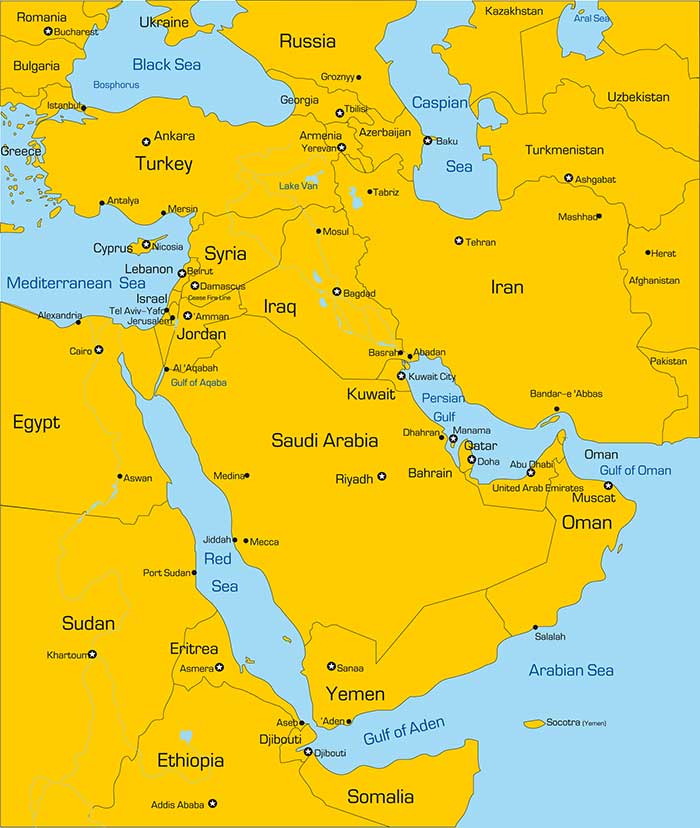Saudi Arabia, China, Expected To Strengthen Trade & Development Ties During Xi’s Presidential Visit
China’s President Xi Jinping arriving in the Saudi Arabian capital Riyadh today (Wednesday, December 7) on a long-awaited visit. Saudi Arabia is giving Xi full state pageantry and the possibility of multiple agreements expected to cement ties between China and Saudi Arabia. The two countries signed off a massive, ‘Strategic Partnership Energy Agreement’ earlier this year; Xi’s visit is expected to expand on that deal and develop it into additional infrastructure and regional development plans. Part of that will undoubtedly be to link the Saudi Vision 2030 national development plan to the Chinese Belt and Road Initiative. One can expect significant development contracts being planned for Chinese SOEs to undertake and build. Some of these are hugely innovative, such as the Neom project, a city being built in Tabuk Province in Northwestern Saudi Arabia. It is planned to incorporate smart city technologies and function as a tourist destination and is sited to the north of the Red Sea, east of Egypt across the Gulf of Aqaba, and south of Jordan. These developments include the Red Sea Sindalah resort area in addition to ‘The Line’ a 5-mile city across the desert, while others include developments for the Kingdom’s hosting of the 2029 Asian Winter Games.
Riyadh is also contemplating a bid for the 2030 FIFA World Cup Finals, which are currently underway in Qatar and scheduled to be in North America (co-hosted by Canada, Mexico and the United States) in 2026. Beijing will no doubt rally Asian support behind such a bid and will be more than happy with Riyadh’s extensive development plans.
Xi will meet more than 30 heads of state and business leaders during his three-day visit to Riyadh, which is set to lead to a “strategic partnership” between the two countries. The visit takes place as a trade relationship based on oil sales, has now grown into bilateral trade of close to US$90 billion a year and opened up trade and development routes for China to the entire Middle Eastern region. China is also currently negotiating a Free Trade Agreement with the Gulf Cooperation Council (GCC) which also includes along with Saudi Arabia, Bahrain, Kuwait, Oman, Qatar and the United Arab Emirates. Beijing remains heavily dependent on oil for its energy demands and has made no secret of its intent to consolidate energy and political ties with the GCC.

The reception that awaits Xi is in stark contrast to the low key and empty-handed visit of the US President, Joe Biden, to Jeddah in August. Biden had arrived in Saudi Arabia seeking assurances over global oil prices, which the kingdom had refused to help lower by cutting supply. Biden left without a deal, as Riyadh appeared to support Russia as a regional ally. Saudi Arabia’s de facto leader, Crown Prince Mohammed bin Salman, has also been angered by Biden’s vow at the outset of his administration to consider him a pariah, after US intelligence agencies concluded that he ordered the assassination of dissident Jamal Khashoggi, a claim that Riyadh denies.
The contrast to Biden’s reception in terms of Xi’s visit is significant. China and Saudi Arabia already have lucrative deals across the technology, industrial, petrochemical and weapons sectors, and these are likely to be significantly expanded. Beijing is already Riyadh’s biggest trading partner and Saudi Arabia is a member of the Belt and Road Initiative. Mutual investments into the Middle East and Central Asian regions have already been made – more can be expected.
More recently, Riyadh has expressed interest in joining the BRICS grouping of countries and is a dialogue partner with the Shanghai Cooperation Organisation.
The development of relations between Saudi Arabia, China and the United States has been eloquently expressed via a Saudi Government Official who stated in local media that “We have said for a long time that there are more people to dine with than purely Washington. That message will be very clear when Xi Jinping’s visit gets under way. The Chinese do not lecture, and they don’t disrespect. They know how to do business. The Americans on the other hand have wanted us to choose sides. We will not.”
Related Reading
- IMF Says Saudi Arabia’s Economy Growing Faster Than United States
- Saudi Arabia & China’s Silk Road Fund Invest In Uzbekistan Gas Industry
About Us
Middle East Briefing is one of five regional publications under the Asia Briefing brand. It is supported by Dezan Shira & Associates, a pan-Asia, multi-disciplinary professional services firm that assists foreign investors throughout Asia, including through offices in Dubai (UAE). Dezan Shira & Associates also maintains offices or has alliance partners assisting foreign investors in China (including the Hong Kong SAR), Indonesia, Singapore, Malaysia, Mongolia, Japan, South Korea, Nepal, The Philippines, Sri Lanka, Thailand, Italy, Germany, Bangladesh, Australia, United States, and United Kingdom and Ireland.
For a complimentary subscription to Middle East Briefing’s content products, please click here. For support with establishing a business in the Middle East or for assistance in analyzing and entering markets elsewhere in Asia, please contact us at dubai@dezshira.com or visit us at www.dezshira.com.








